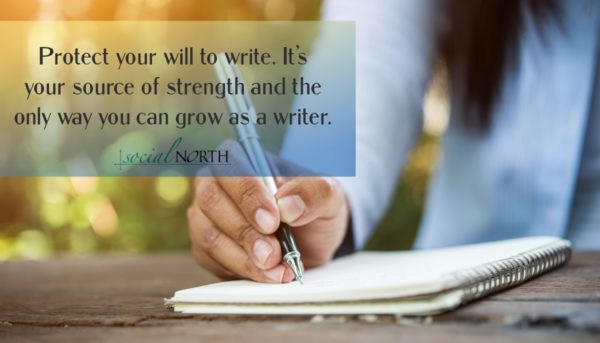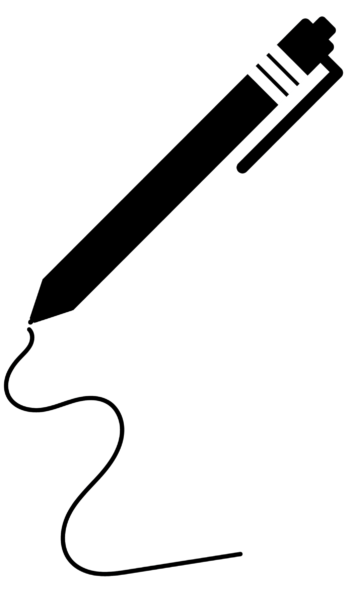What makes a writer good writer – or a bad one?
The shortest distance between two points is a straight line. But a “good” writer doesn’t necessarily want to get “there’ first or fastest. She wants to create there, which means meandering and taking side roads and sometimes getting lost. And getting you there, inviting you to experience and explore the journey with her, is her job as a “good” writer.
 I’ve written for a lot of big (and not so big) publications throughout my career. From The Boston Glove and The American Bar Association Journal and Health Magazine to Chicken Soup for the Soul to church and school newsletters, writing is as much a part of me as my blood type.
I’ve written for a lot of big (and not so big) publications throughout my career. From The Boston Glove and The American Bar Association Journal and Health Magazine to Chicken Soup for the Soul to church and school newsletters, writing is as much a part of me as my blood type.
But before I earned my publishing credits, I earned a whole lots of no’s. My writing wasn’t good enough, strong enough, focused enough. Some days it felt like it wasn’t anything enough. The message was clear – it was bad writing. I was a bad writer.
Had I listened to some of those editors, I’d probably be selling coffee at Starbucks today, which wouldn’t be so bad considering how much I love to talk to people. The point is, I wouldn’t be writing if I’d listened when people told me my writing was bad.
Thankfully I had some very strong cheerleaders who told me I could do it, that I was a good writer. For a while, I believed the cheerleaders and with each rejection, I grew a little stronger. I learned to dust off the negativity and keep writing.
For a long time, I listened to others and allowed my writing to be judged by others. When I finally started listening to myself, ignoring the “bad writer” label and “good writer” label, I found my true writer’s voice. Turns out, that voice was stronger than I could have ever imagined.
The writer’s journey
Every writer’s journey is unique and rarely are those paths neat and clean or even predictable.
 I’ve taught writing in a women’s prison, in a college and to a wide variety of corporate clients. The women I taught in the prison needed to write their stories. And I say needed because of the deep, lung-busting breath they took after they read something they’d written. And then, they’d carelessly throw the story away and write another and another, like some great hunger inside themselves that they’d just discovered. My college students approached writing as a process and invested in reworking the same essay over and over, again and again. They’d rip the bandaid off an old wound, explore it and then continue to rip and dig until they found their truth. Feeling like you’re bleeding on the keyboard, while not pretty, can help writers uncover some amazing stories.
I’ve taught writing in a women’s prison, in a college and to a wide variety of corporate clients. The women I taught in the prison needed to write their stories. And I say needed because of the deep, lung-busting breath they took after they read something they’d written. And then, they’d carelessly throw the story away and write another and another, like some great hunger inside themselves that they’d just discovered. My college students approached writing as a process and invested in reworking the same essay over and over, again and again. They’d rip the bandaid off an old wound, explore it and then continue to rip and dig until they found their truth. Feeling like you’re bleeding on the keyboard, while not pretty, can help writers uncover some amazing stories.
In the corporate world, I taught employees how inject their personality into the official message. They learned how to take their personal experiences and make them universally appealing. And, of course, injecting the digital need for SEO couldn’t be ignored.
The common thread? When you write from somewhere deep inside you, good writing emerges – and it deserves your protection. For some of us, sharing our writing is like shedding our clothes in public. For my prison students, that was easy – judgement wasn’t new to them. For the rest of us, our personal stories may be a little different.
The art of rewriting and why it’s game changing
My publishing credits may have earned me the title of a good writer, but I’ll settle for fair. And then I’ll tell you my secret. Re-writing is the most crucial step in the writing process. It can be frustrating, especially when you’re still in “writer mode” and you believe you’ve written a brilliant piece.
 Being willing to rework your writing over and over again is what separates the good from the great, the hobbyist from the professional. Just like a singer or athlete, your natural born talent will only get you so far.
Being willing to rework your writing over and over again is what separates the good from the great, the hobbyist from the professional. Just like a singer or athlete, your natural born talent will only get you so far.
I don’t write a blog post in the morning and publish it in the afternoon. Ideas and writing takes time to percolate, time to be revisited and questioned. Where can I beef up an argument? Where have I been to verbose – or not painted a robust enough picture? An editor once told me that his average editing process took 17 rewrites – something he measured long before computers. That’s a lot of paper.
There are as many approaches to rewriting as there are writers.
Realize this: re-writing your article or blog post will make your writer cleaner, stronger and that will bolster your writing confidence. And that’s always a good thing.
Observations on becoming a “Good Writer”
Protect your will to write. It’s the source of your strength and the only way you can grow as a writer. Critics want you to write like them so take their offer of guidance with a healthy share of levity. It doesn’t make any difference whether a critique is harsh, diplomatic, or complementary, they can hurt. A Snicker’s bar close by can help. Seriously.
They say write what you know but when you’re starting out, that advice can be hard to swallow. Instead, write about anything that captures your imagination – write about everything. Trust that you’ll find your niche eventually.
Respect yourself and remember that writing is a craft that demands attention and care and a whole lot of rough drafts. If you want to improve your skills, you have to continue to experiment and write and, yes, fail.
Help other writers when you can. We’re all in this together.
Believe in yourself.
Protect your will to write.
“Writing is not a contest. Every writer is starting from a different point and is bound for different destinations. Don’t get paralyzed by the thought that you are competing with everybody else who is trying to write and presumably doing it better.”
~William Zinsser
“Every child is an artist. The problem is how to remain an artist once he grows up.”
~Pablo Picasso
“Imagination is more important than knowledge.”
~Albert Einstein
When you walk to the edge
of all the light you have
And you take the first step into
the darkness of the unknown
You must believe that
one of two things will happen
There will be something solid
for you to stand upon
or you will be
taught to fly.
~Patrick Overton
 If you’re struggling with your writing journey, I’d love to hear your questions and how I can help. Drop a comment below or shoot me an email and let’s start talking.
If you’re struggling with your writing journey, I’d love to hear your questions and how I can help. Drop a comment below or shoot me an email and let’s start talking.
In the meantime, these posts might help you begin your content marketing journey:


A thousand times this. I do believe in good writers, but only insofar as being a good writer means being a good editor. It means stalking through the halls of your narrative with an assault rifle and placing the cold barrel against the temple of a sobbing paragraph. You made that paragraph. You love it. It’s your writing. But it was too clunky, or the facts don’t fit together right, and your love for that paragraph can’t override your love for a good product. So you pull the trigger. All the stray sentences and Oxford commas gasp when the next round snaps into the chamber, and you scan the article for another victim.
That’s the hard part about editing. It means getting rid of the parts that you like. Removing the things that you love in favour of what’s good. And that’s not easy, which is why we use editors. They see it with fresh eyes, without attachment to a specific set of clauses or that wink at the reader in chapter three. But when you get that list, it seems harder. They just don’t understand it, you say. But they do. They’re editors. Fight with them if they’re stifling your voice, but understand the editing is what makes writing good. Atwood, MacLennan, Mitchell, they’re all great writers, but they also have great editors.
Brilliant, Jim! One of my favorite editors once told me that I should be stripping half of the original piece away before I’m finished. He also told me to write at a grade 6 level, which annoyed me beyond belief. Then he said this to me: “the bible is written at 6 level, get over yourself.” Picked my jaw off the floor and proceeded 🙂
Thanks so much for stopping by and adding such great insights!
Hi Julia,
Your post highlighted a very important point:
“Be careful who you listen to”
I think good writing is such a subjective thing. What one person loves and thinks is a masterpeice another person might think is drivel.
Imagine if J.K. Rowling had listened to all the publishers that rejected her many years ago and given up – there would be no Harry Potter. And her latest book – venturing into the adult book market – highlights this too – some people are saying they love it, others trashing it.
So as your point highlights, we need to be careful who we listen to as we progress down our writing path – and that includes our own negative self talk!
As a shameless bibliophile I have to assert that I agree that there are absolutely what could be called ‘bad’ writers out there. But that assertion deserves an explanation into what I have observed to be ‘good’ and ‘bad’ writers. The goal of writing, one could argue, is to articulate a thought or an idea. A good writer can not only articulate an idea, but can also put that idea into a context that a reader can identify with and understand. A bad writer, in my experience, is someone who is unable to communicate well – the direction of their articulation is disjointed and the architecture of their prose is riddled with superfluous tangents. The deciding factor between ‘good’ and ‘bad’ can really be traced back to what you touched on though, and that’s the ability, willingness and discipline to grow and learn how to articulate better. So yes, I would absolutely say that there are bad writers out there – they are people who refuse to discipline themselves and learn how to communicate more effectively.
Well said, Caryn and I agree, in principle. There are some writers that I’ll be happy to tell you are great writers, they astound me and speak to me and I connect with them in ways I don’t with other writers. But my opinion of good is just that – it’s an opinion. It’s not a fact. It can’t be scientifically proven. Sure, an awful lot of people might agree with me and their books or articles become sought after because a group of people like them. But for every person who likes their work, there could be another person who doesn’t like it. Not everyone liked James Frey when he published a Million Little Pieces – I was one of them. And I was astounded that Oprah loved his work so much – did that make me an idot for not liking his work? Not at all, it means that good is too subjective – and it’s too hurtful to those who sit outside that label. A published author doesn’t make a good author – it just means s/he’s found the right editor.
I still get very nervous when I write and the thought of being called a bad writer can paralyze me. I choose not to use labels like good or bad because I know how they make me feel.
Thanks so much for stopping by and sharing your thoughts – seriously love this conversation!
I think “a good writer” is one who’s actually read.
If a person offers up words in such a way that word-weary human beings notice and read the first sentence… and then the next… and stay right there with the writer to the end… that’s a good writer.
A writer wrestles with words like a grizzly bear – it’s all out. It’s a bloody and difficult business.
Themes, objectives, narrative arc, factual precision, engaging phrase… many a hidden craft. Including, critically, editing.
But READING – that must be either Easy, or Worth It.
So if people find it enjoyable to read your words, or if people find your words worth hanging in there because of something valuable within – that’s a good writer.
Thanks for the brain stimulation this morning, Julia! Enjoyed this piece. Writers enjoy reading about writing, yes?
Beautifully written, Stephanie. Thank you for stimulating my brain and turning the conversation around. like beauty, good writing is in the eye of the beholder. Can’t wait to see you next week in High Point!
Taste is subjective; however, I firmly believe that there are writers who fall squarely into the good category. We may not all appreciate their work (based on our tastes and style preferences), but exceptional talent can be spotted.
I agree that one of the greatest skills to develop is the ability to edit and rewrite one’s work. In my personal blogging I’ve chosen not to do that as extensively as I’m naturally inclined to. The blog is my space to practise free writing and connect with readers in as genuine a manner as possible. Allowing myself to write without the need to continuously edit words and phrases allows the words to flow easier in other forms of writing where a story needs to come out first, and then be edited.
Hi Kat, thanks for stopping by and leaving a comment. I agree that good things rise to the top and that maybe I’ve gone a little over the top to make my point about labels. I really do love that this conversation has grown richer since taking it off twitter and giving people a chance to say more. And I love that my opinion is still just that, my opinion. Thank you again!
Each writer’s journey is truly unique, and the definitions of “good” are equally so. Stephen King aspires to be “good”. Think about that for a minute. Arguably one of the best writers of his generation, and at his absolute best he would describe his work as “good”. And that’s the beauty of it, really. A smart writer defines “good” in the way that makes the most sense for them. For me, the definition changes with each piece. My non-fiction book about my daughter’s scoliosis journey is good. The mental health essays I wrote for Stigma Fighters are decent. The article I wrote for YourTango about getting my ass waxed is not (nor are handfuls upon handfuls of the hundreds of blog posts I’ve written.) One thing is certain, though, and the quote oft attributed to Hemingway says it best:: “The first draft of anything is shit.” Even revisions, rewrites, and thorough editing – BY A PROFESSIONAL – won’t guarantee something is good. It will, however, make it better. Personally, so long as my writing continues to improve that’s all that matters.